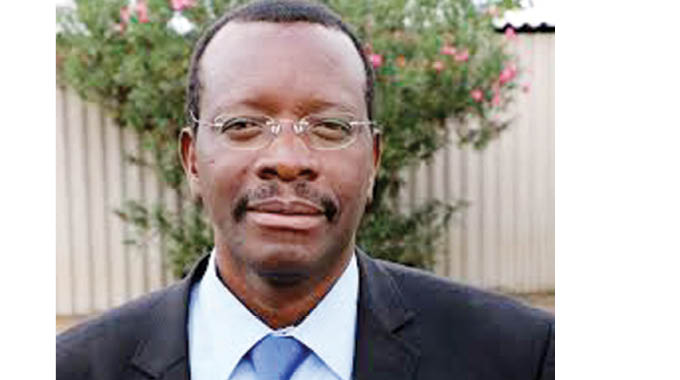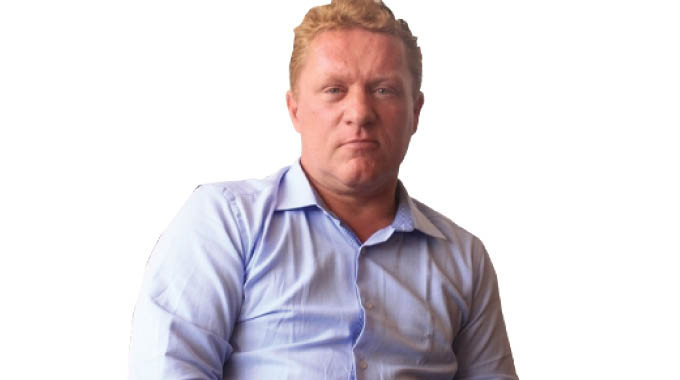Panaceas in the ‘Universal Individual’

Stephen Mpofu, Perspective
Should the 2019/20 rainy season now upon us clinch normal as already forecast by weather experts, Zimbabwe should pull all stops to transcend the ignominy of holding up a begging bowl to the world each time crops fail due to drought as what has happened many times since the early years of independence when Zimbabwe flaunted the status of Africa’s breadbasket with food being carted across the continent as far as Egypt — a status the renascence of which today’s Zimbabwean would clearly wish to relive.
It is indeed both a tragic irony and a shame that with vast tracts of fertile land acquired from white farmers under the agrarian reform programme as well as Command Agriculture introduced to offset drought conditions, present day farmers lamentably fail to match the mettle of the peasantry who gave this country fame as a food producer while working small tracts of sometimes infertile land that they possessed during the white racist colonial era.
A Bulawayo based physician and author explained this week why in spite of abundant land available to them, Zimbabweans in post modernity have to scratch the ground for food, like chickens, when crops fail due to drought.
Dr Solwayo Ngwenya said Zimbabwe had severed their centuries-old cultural linkage with God, the maker of rain, and that at the behest of a church which those without knees brought along to Africa and to this country which denounced as primitive and ungodly rain making ceremonies at the Njelele shrine in Matobo District and to which Africans trooped to entreat God for rain.
Indeed, with that cultural linkage broken, pilgrimages to Zame, or the Njelele shrine, sound to modern Zimbabweans as mere fairytales.
Yet had what went on at the shrine been immortalised in black and white, modern generations would have been left with an important fund of knowledge to the effect that on returning home to various parts of the country from Njelele, some pilgrims were drenched while en route as skies opened up, apparently in positive responses to the plaintive requests to the most high God to end droughts being experienced.
What about the prayers for rain by churches? This writer posed the question to Dr Ngwenya and his response was that it was all very well for the churches to make their prayers for rain to the “universal individual” God.
The bottom line in both the rain making ceremonies at Njelele and prayers for rain by the churches would appear to be the degree of faith and belief in the outcome of what was being sought in both instances.
Praying for rain as a normal church routine or ritual in times of drought cannot be expected to achieve the desired results since, moreover, the Bible says: “Without faith it is impossible to please God.”
What appears implicit in the Bible’s warning is that Zimbabweans and other people should put all their faith in God for the solutions they seek to their trials and tribulations because it is only God, or the Universal Individual, as Dr Ngwenya calls him, that panaceas to all challenges faced by humanity reside.
Which also means that today Zimbabweans should put their unqualified faith in God as they embark on a new season to produce food for themselves.
That faith and commitment as Zimbabweans in general prepare for a new season of food production should be reinforced by the support from the leaders they voted into power who ought to act as political guiding stars for povo wallowing in want as well as in doubts as to which way to go especially now with the price madness that has left many an ordinary Government supporter confused as to what tomorrow will have in store for them.
That those ministers responsible for finance, commerce and industry instead of putting a stop to retail prices shooting up everyday no doubt appear rightfully or wrongly to some of the poor who need protection as running with the hares and hunting with the hounds, or as living in a world of their own where they do not suffer want while the masses risk getting poorer and poorer without the protection of those that they put in power with the result that the poor in our society will go poorer if no action is taken to stabilise things.
What the above therefore suggests is that the leaders — be they political, parliamentary or Government representatives — must leave their comfort zones and work with povo in strengthening agriculture to carry millions of the heavy, light and fledgling bellies of this country’s population both out there in the countryside as well as in urban centres, since at present minimal industrialisation is, and should be viewed as, a buckling back of the economy and one that cannot carry the nation forward.
Should, for instance, the masses out there in the rural areas receive both verbal and material support from their leaders in, for instance, growing drought-resistant crops such as uphoko/rukweza, mhunga/inyawuthi as well as mapfunde/amabele until such a time that economic fundamentals are equal, our people will crack sumptuous smiles as they walk through into rosy futures with their heads thrust high and with the mouths of people in the rest of the global village parted in admiration of our triumphs as a united nation whether the weather be good, whether the weather be bad.








Comments